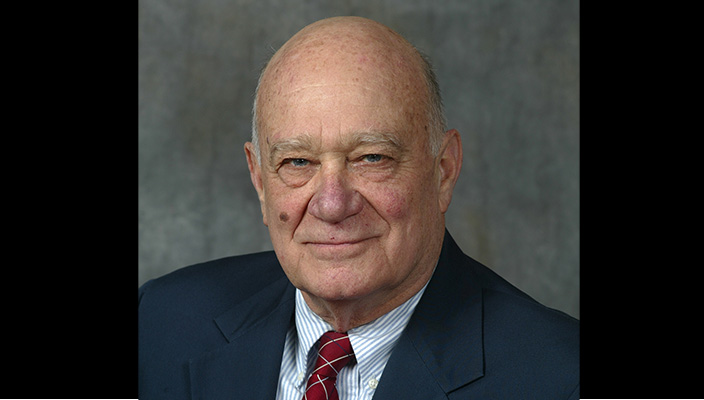Many colleges, including Hofstra University where I teach, have adjusted their schedules and much else because of the pandemic.
For Hofstra and others the semester begins this month and will conclude at Thanksgiving in order to reduce travel for students. They will return for the second semester in January.
I have been highly impressed by the careful, thoughtful planning for the fall by Hofstra’s administrators and faculty and by the positivity of students who have been part of the discourse.
Even before millionaire professional athletes began opting out of playing for their teams, I made a reluctant decision — with the support of the university — to postpone my courses until fall 2021.
Because I am now an emeritus professor, I have fewer courses, usually in specialized areas approved by my department.
This fall I had an excellent early enrollment in one of my favorite courses: “History and Media.” For this start of my 61st year at Hofstra, I was also slated to team-teach “Introduction to Peace and Conflict Studies.”
But, given my age and health history, several doctors said I was a high virus risk, that it would be prudent to resume teaching when a vaccine is available,
I am far from alone in needing to make adjustments because of Covid-19. Still, I have a let-down feeling knowing I will miss a semester of teaching and especially, the camaraderie of colleagues and students.
Pondering these developments caused me to recall the start of my own college education. Over my many decades of teaching I always felt a special concern about beginning freshmen. The start of college life, especially while living away from your home, is one of life’s major transitions.
Under the best of circumstances, teenagers need to deal with time management challenges and developing new friendships. Associating with other teens can be a delight, but too often we assume that it takes place easily and comfortably.
When I began my freshman year at Union College, I did not know a single person at the campus. Although I had been a gregarious person and a leader at my high school, I felt anxiety about getting to know and befriending new people, all the more so because they represented such a range of backgrounds compared to the small ethnic community where I grew up,
There are activities and organizations that help build relationships of encouragement and support; among them are fraternities and sororities, but they were literally Greek to me when I started in 1953. Coming from an immigrant family, I had never heard of fraternities at colleges. Indeed, no one from my extended family had graduated from high school. I was the first to do that and the first to go to college.
Building relationship bonds can take time, and with all of my previous gregariousness, I felt lonely for the first time in my life at college. I believe that loneliness is a continuing concern for people of all ages, but especially for youth who are on their own for the first time.
Such normal adjustments have now become complicated by fears and uncertainties created by the pandemic. A few recent publication headlines illustrate this: “Stress Test: Pandemic taking a mental toll on college students.” Also: “Unsettledness surrounds us;” and “Adolescent isolation Increases during Covid-19 lockdown;” more comprehensively: “America Is a coalition of the worried.”
Attending college has effectively been described “as a time out of time” – a period of years for emerging adults when they can learn much about themselves and about the world. Those journeys of discovery can be joyous, but we should remember that personal and group support systems are central to positive advances.
As a teacher, I always tried to be especially attentive to beginning freshmen, seeking ways to assist them and affirm them. Of course, teachers want to do that with all students, but new beginnings are special.
One of my major support systems in 1953 came from Union’s fraternities (as I recall there were 18 of them). With a freshmen class of 300, the frats were not exclusive. Most newcomers, like me, had no idea about the rushing and bidding process.
The number of bids for membership that one received became something of a status symbol. However, we did not know that the fraternities had done research about us before we reached campus to refine their list for recruitment.
Colleges like Union, with so many fraternities wooing freshmen (often from the first weeks on campus), had the positive effect of making one feel welcomed, with a prospect of close ties with brothers.
A bit more than a week ago, The New York Times had this page one story: “On Campus, a rejection of Greek life.”
In my next column, I will explore the benefits and limitations of fraternities, including my own experiences of protest when in 1955, my prominent national fraternity tried to prevent its nearly 100 chapters from following the example of Kenyon College, the first Beta chapter to pledge a Black student.



